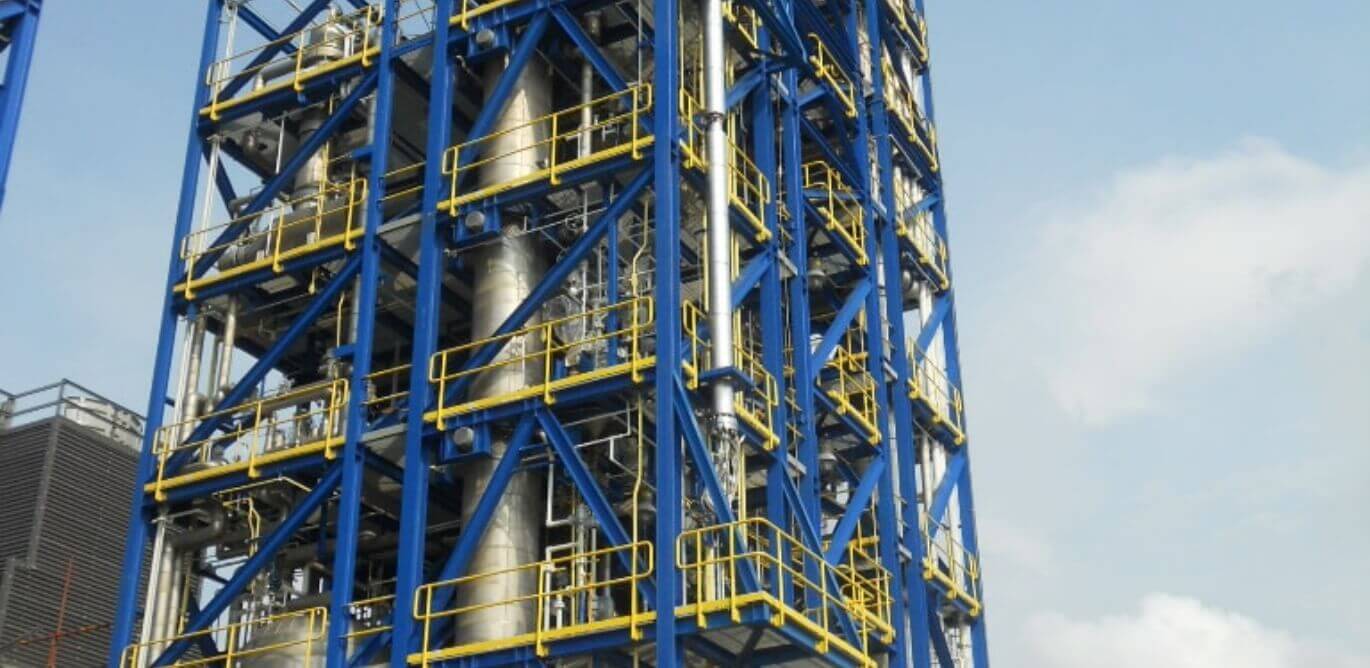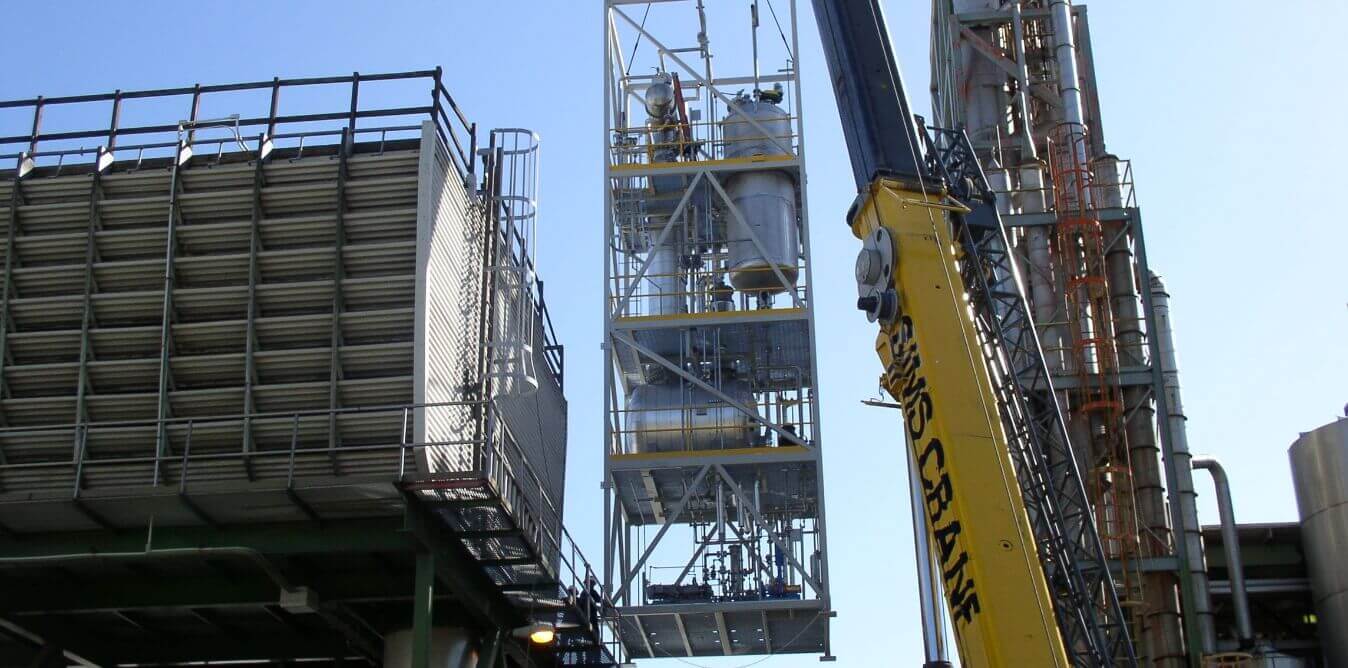

Pharmaceutical Processing
Because of their reactive and potentially hazardous nature, these chemical processes must be carried out in an industrial chemical plant. Chemical plants are intricate facilities that use corrosion-resistant equipment and units, and require specialized technology in the manufacturing process. They are highly controlled with regards to temperature and pressure levels and require quality control and pilot testing labs to ensure safe operations.
Pharmaceutical Distillation and Solvent Recovery Mass Transfer Systems
Koch Modular Process Systems consistently delivers cost-effective solvent recovery and wastewater stripping systems to the world’s leading pharmaceutical companies.
The pharmaceutical industry develops and produces drugs in the form of pharmaceuticals and medications for consumers. Pharmaceutical manufacturing takes on a series of processes including milling, granulation, coating, tablet pressing, among others. Throughout this process, the substantial amount of chemicals and biological substances used results in the emission of volatile organic compounds and the production of waste water.
Koch Modular has experience with the following design aspects unique to the pharmaceutical industry and the processing of active pharmaceutical ingredients (API):
- ICH Q7, 3-A and USP standards compliance
- Process Validation
- Sanitary equipment, tubing and fittings
- Polishing and passivation
Pharmaceutical Company Distillation Services
We have extensive experience in providing distillation services to pharmaceutical companies worldwide. A solvent recovery system is a modular system that works to recover a solvent such as isopropyl alcohol (IPA) from an aqueous process stream generated in the production of a pharmaceutical. Oftentimes, environmental regulations, new solvent costs, and disposal costs can surpass the cost of the solvent recovery operation. For this reason, it becomes crucial that your pharmaceutical company has a cost-effective solvent recovery system so your project is not only sustainable but profitable as well.
Solvent Recovery for Pharmaceutical Industries
Our knowledgeable and skilled engineers excel at solving difficult solvent recovery applications. We have over 25 years of experience with many recovery techniques for a wide range of solvents, including the following:
- Acetates
- Alcohols
- Chlorinated Hydrocarbons
- Ketones
To view a full list of previous Koch Modular projects, click here.
We also specialize in steam stripping for pharmaceutical companies. In the simplest terms, steam stripping, or steam distillation, is the means of cleaning up plant wastewater streams. This process is necessary for removing various organic contaminants from plant wastewater in order to meet the standards and guidelines set by the EPA.
Using steam strippers, Koch Modular Process Systems has successfully removed the following compounds for pharmaceutical companies:
- Alcohols
- Ketones
- Aromatics
- Aliphatics
- Acetates
- Chlorinated Hydrocarbons
Fill out a project inquiry form for more information on the services we can provide your company.
Pharmaceutical Process Engineering
Pharmaceutical process engineering is at work during all stages of a continuous manufacturing process. Pharmaceutical process engineers are responsible for designing, implementing, controlling and optimizing pharmaceutical processes. Within pharmaceutical equipment manufacturing, the processes involved can be chemical or biochemical. These engineers can be designing innovative processes and equipment for a new facility or they can be involved in the modification and optimization of pharmaceutical equipment and processes that are already in place. The responsibilities of a pharmaceutical process engineer may also include providing analysis of the process to ensure safety, efficiency, and compliance with relevant regulations.